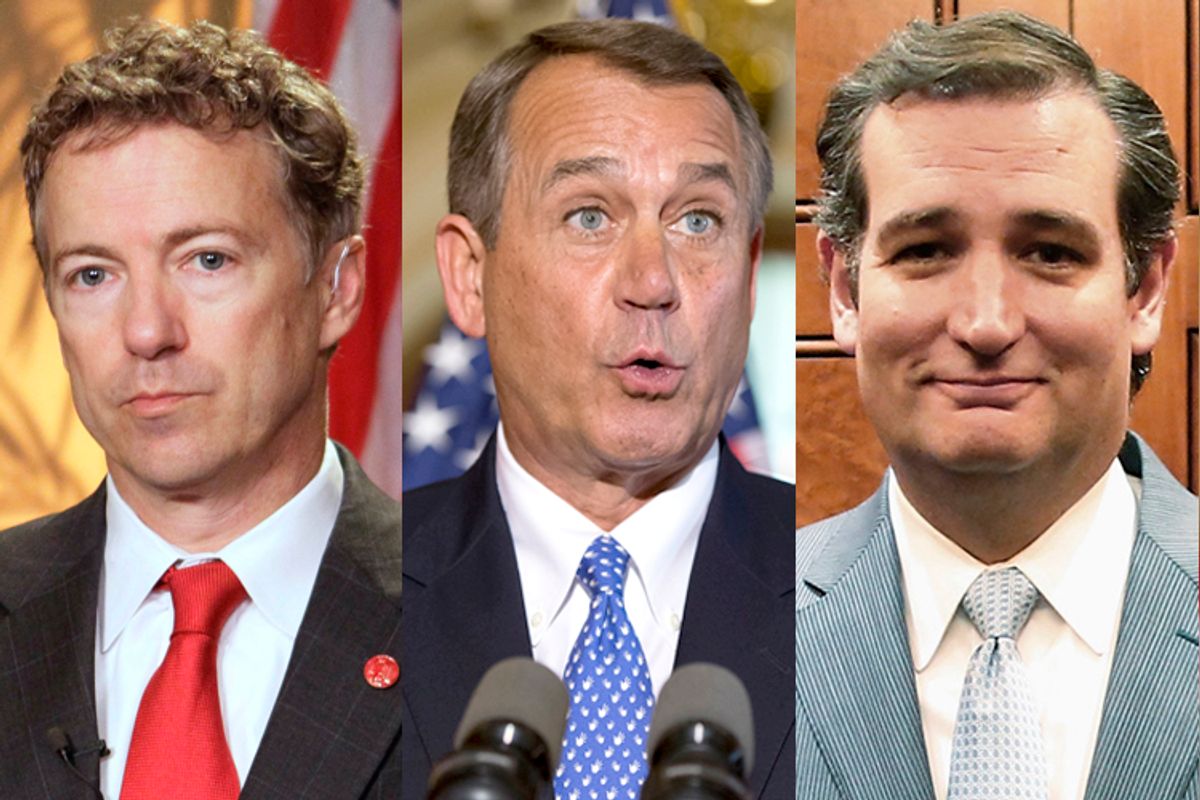For a whole bunch of journalists, the State of the Union is principally an occasion to create an arbitrary standard of showmanship, so they can later argue meaninglessly that the president of the United States did or did not perform as well as needed to meet said benchmark.
Others, perhaps dispirited by that kind of tedious circular reasoning, take the more fatalistic view that a State of the Union address, like almost all presidential speeches, is fairly meaningless except insofar as it serves as a reference point for people tracking a president's aspirations.
I'm going to play peacemaker and say that a State of the Union address can be of limited use, particularly when a president, like President Obama, is nearing the endpoint of his proactive relationship with Congress.
If Congress were in the midst of a serious legislative project, it might make some sense not to antagonize members at the margin. And perhaps Obama is optimistic enough about the prospects of a halfway decent immigration reform bill passing the House that he doesn't want to give marginal Republicans the excuse they're looking for to jump ship.
But excepting the remote possibility of the House passing a viable immigration reform bill, Obama's policy agenda for the year will take shape almost entirely outside of Congress' control. His imperatives are to maximize Obamacare enrollment and to use executive actions when possible to make progress toward goals the GOP-led House of Representatives doesn't share.
There are at least two ways an agenda like that falls apart: 1) poor execution and 2) ineffective communication.
The State of the Union address has no bearing on the former -- after the Healthcare.gov fiasco one hopes that the Obama administration has become more finely attuned to pivotal technical details. But a nationally televised address to a captive audience of scowling Republicans is a pretty great bulwark against the latter.
The thematic material -- I expect we'll hear a great deal about the common threads running through his proposals to address immigration reform, gender and income inequality, gay rights and so on -- can help him influence the political debate he's teeing up for the next presidential election.
But his immediate concerns are less abstract, and his biggest obstacles will be seated in front of him.
Now that Healthcare.gov is basically working, public communication is perhaps the largest remaining variable with an ongoing impact on enrollment. But it cuts both ways. Even if Obama and his allies execute their enrollment strategy flawlessly, Republicans are still actively undermining the effort with a wide range of stories and arguments, some more honest than others, intended to discourage enrollment.
The State of the Union provides him an opportunity to advance his enrollment campaign and call out to discredit the GOP's counter campaign simultaneously. That might give enrollment a modest nudge, and if so, it's worth doing.
Likewise, administration officials have already forecasted Obama's intent to act independently of Congress on several fronts, but they've been a little vague about which ones and what the actions will look like. I think it's a pretty safe bet that no matter what those actions are, Republicans will decry and mischaracterize them. The most legally sound, politically popular executive order will be a stunning arrogation of dictatorial power in their rendering. So it would make a certain amount of sense to just enumerate them, define them, explain why they're in the offing, and that they probably wouldn't be necessary if Congress (i.e., Republicans in Congress) would just listen to voters.
That wouldn't be some major strategic coup, but it would help shape public opinion early, and allow it to evolve from a more positive starting point. Then, of course, there's the small matter of getting the policy right.
But this isn't really Obama's style. He took the assembled Supreme Court justices to the woodshed in one State of the Union for their decision in Citizens United v. FEC, but he's typically reserved this kind of confrontational approach for more political, much less widely viewed speeches.
I expect he'll speak a little more softly than this, and that any Republican looking for a way to blame him for their legislative failures will find something in the speech to use as an excuse. That's just kind of how these things go.



Shares